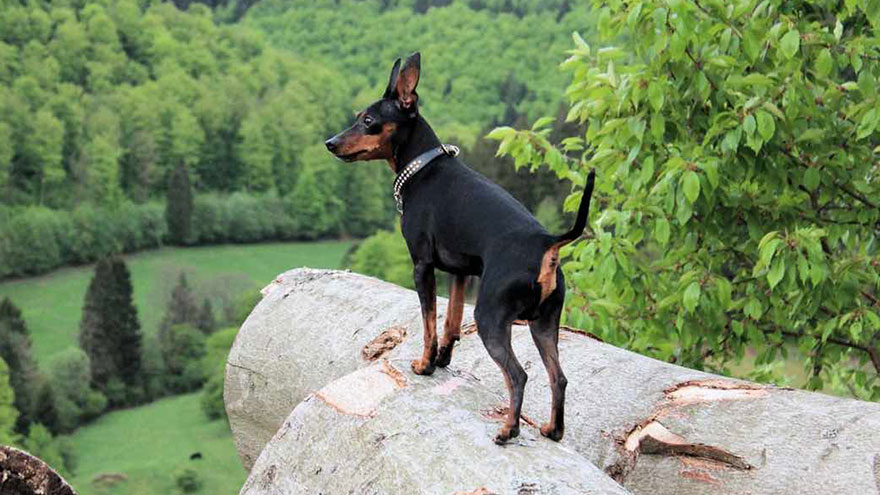Miniature Pinscher Health Guide
Owners of the Miniature Pinscher have found this wonderful, tiny breed to be quite sturdy, generally free of serious health problems. The key to having a long, problem-free relationship with any pet is to get a good start.
The place to begin is with visits to several reputable breeders where you can ask questions about the proper feeding and care of your Miniature Pinscher. Additionally, you want to get a good look at the living conditions in which your new puppy was raised.
Health Problems in the Miniature Pinscher
There are a few potential health issues with any purebred dog and the Miniature Pinscher is no different. This breed is prone to progressive retinal atrophy, a genetic eye disease that may lead to blindness. Limited vision in low light and at night is a key symptom of this progressive disease. Ask your breeder about this condition in relation to the parents of the litter you are looking considering.
Smaller dogs can also develop a dislocated kneecap (luxating patella), which is known to lead to pain and limited movement. Again, it is highly recommended that you ask your breeder about this condition and experience with it in breeding dogs. One of the things to be aware of with the Miniature Pinscher is the potential for rough handling by the children. Although the Miniature Pinscher is a muscular and compact dog, it does not respond well to rough handling.
If you begin by purchasing your Miniature Pinscher from a good breeder who has taken the time to socialize the puppies well, and you spend time teaching your children the proper way to handle a small dog, you will avoid problems. In addition, the Miniature Pinscher was bred to hunt vermin, often used to keep rural kitchens mouse-free.

Therefore, we recommend that you always watch for this dog’s tendency to investigate and attack small objects that could be swallowed, causing choking, and other serious health situations.
Owners of Miniature Pinschers should always be aware of the potential for obesity with this small dog. Although this breed is very energetic and seems to be in motion most of the time, many owners report the dog tends to overeat. It would be best to constantly, monitor your new pet’s eating habits and to consult with your breeder and veterinarian to make sure you get the right diet.
If you feed your Miniature Pinscher commercial dog food, make sure it is the premium brand and mix, with plenty of quality meat content.
If you take the time to get the right amount of protein, fat, and fiber for your new pet, it will be much happier and healthier. We highly recommend feeding your pet the same quality ingredients you buy for yourself at the store, which would include fresh, lean meats, certain vegetables, and healthy snacks. However, you want to talk about with your breeder and your veterinarian about to ensure you choose the right types of food.
You can also learn quite a bit about how your dog is growing and feeling by watching closely when it eats and watching how it acts immediately before and after meals. When considering what to feed your new pet, remember that many dogs are allergic to the high grain content of cheaper dog foods. In fact, some dogs actually develop skin and breathing problems from these allergies.
The Miniature Pinscher typically does not need a great deal of exercise to remain healthy, especially if it has a moderate-size yard to run in and to explore. If you take your new Miniature Pinscher out for a walk, always use a leash, as this breed tends to run off to explore and then get lost.
Read More About Miniature Pinscher
- Miniature Pinscher Breed Information
- Miniature Pinscher : 10 Most Common Questions
- Miniature Pinscher Training Guide
- Owning a Miniature Pinscher : Breeder Recommendations

